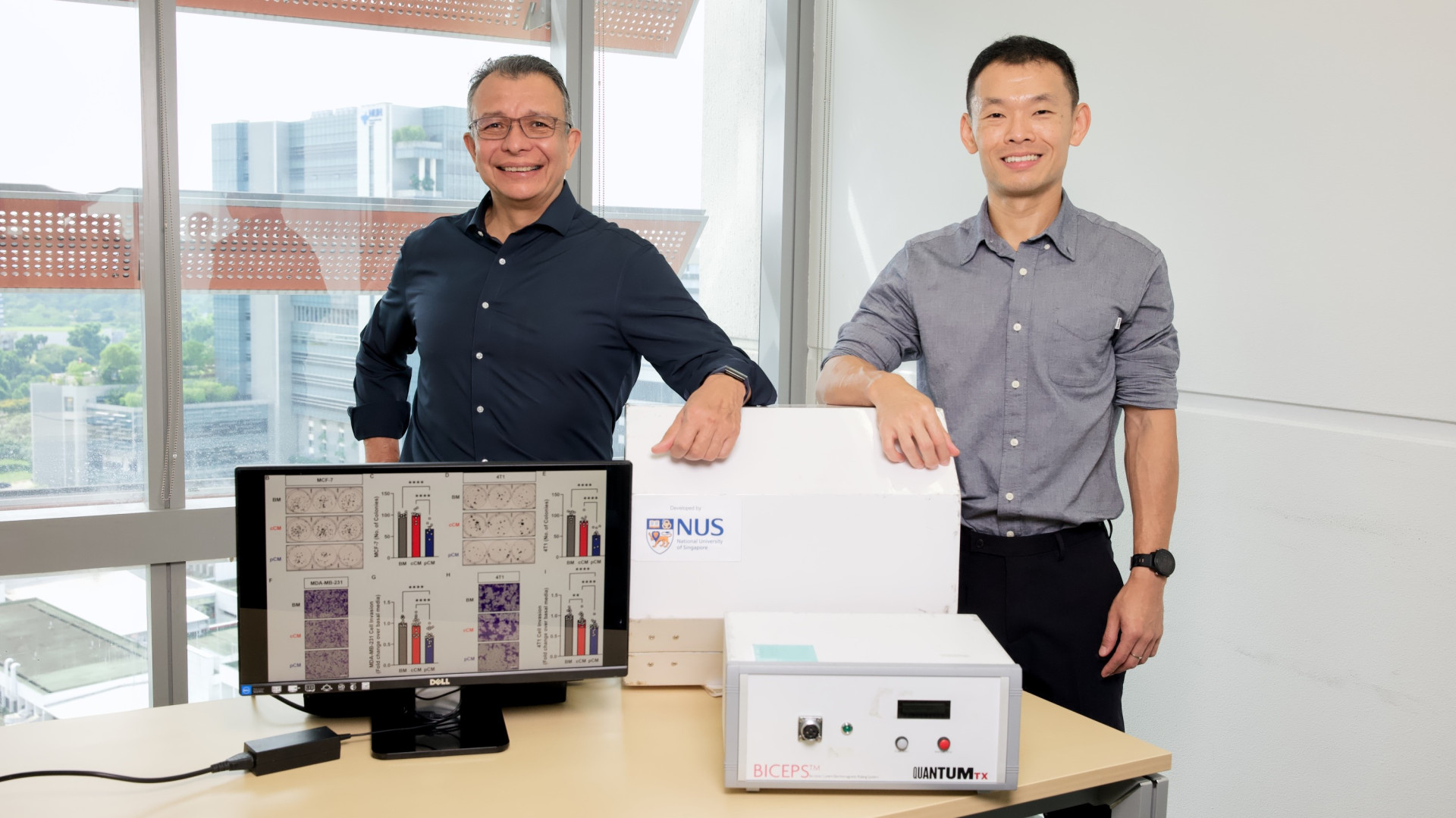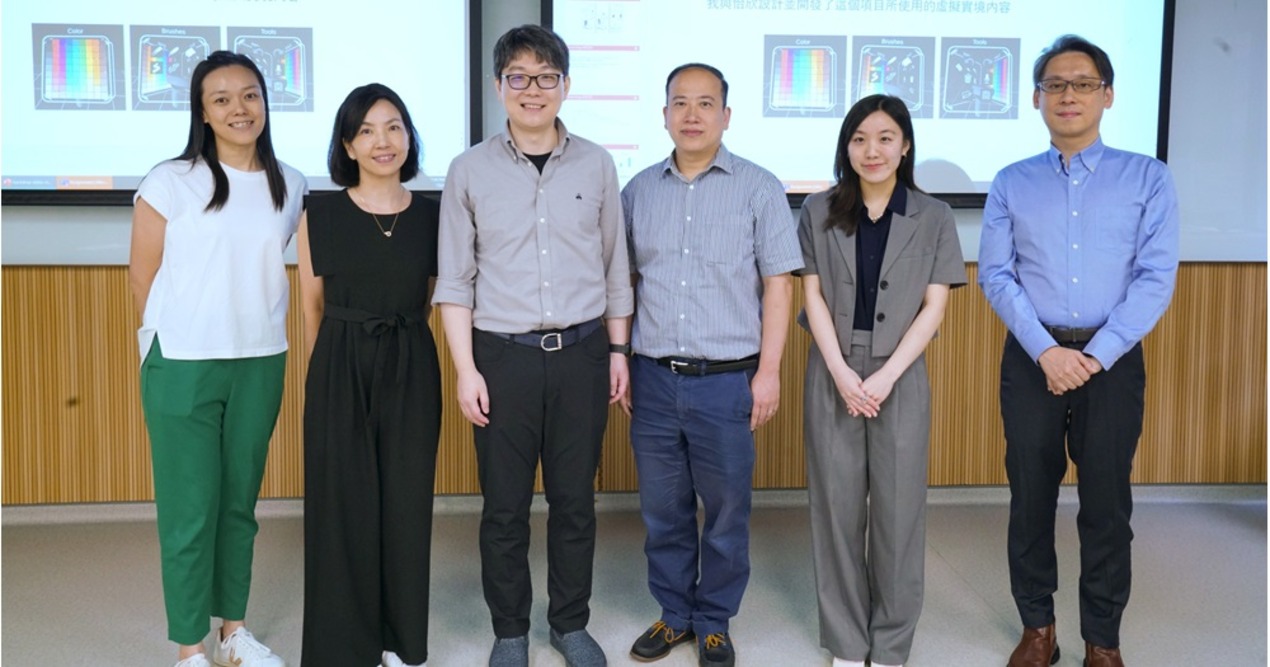
|
Getting your Trinity Audio player ready...
|
The National University of Singapore (NUS) spearheads tech and digital innovation in AI, cybersecurity, sustainable energy, and biotechnology, driving transformative advancements through groundbreaking research and partnerships, and shaping global technology’s future.

In significant advancement, scientists at the NUS have discovered a method to activate muscle cells’ natural defences against cancer using magnetic pulses. This tech-empowered solution – an innovative, drug-free, and non-invasive technique – promises new developments in cancer treatment and biomarker discovery.
A team led by Associate Professor Alfredo Franco-Obregón from the NUS Institute for Health Innovation & Technology (iHealthtech) has pioneered using brief, mild pulsed electromagnetic field exposure to stimulate muscles. This induces muscle cells to produce and release proteins with potent anticancer properties, which circulate through the bloodstream, providing systemic protection against cancer.
Exercise is known to protect against cancer and improve survival rates, but cancer progression and treatment often prevent patients from benefiting from these effects. “Our non-invasive muscle stimulation method mobilises a similar anticancer defence mechanism as exercise,” explained Franco-Obregón.
Published in Cells, the study highlights the efficacy of this approach. Previously, Franco-Obregón and his team showed that a 10-minute exposure to low-energy magnetic fields could enhance muscle development by releasing regenerative proteins. These proteins are also known to protect against diseases like diabetes and cancer.
The recent study investigated whether the same magnetic stimulation could encourage the production and release of anticancer agents from muscles in preclinical models. Testing at the cellular level revealed that magnetically stimulated muscle cells could inhibit breast cancer cell growth, invasion, and migration. Additionally, these muscle cells could shrink micro-tumors and reduce their blood vessel formation.
The team validated their findings through preclinical studies, demonstrating that a 10-minute magnetic therapy session once a week for eight weeks could evoke similar anticancer properties as exercising twice a week for 20 minutes per session. These properties include preventing the growth, invasion, and migration of breast cancer cells.
Researchers identified HTRA1, a previously suspected tumour suppressor, as being secreted by muscle cells exposed to magnetic fields. This secretion mimicked the effects seen in muscles exercised for 20 minutes twice a week. When HTRA1 was selectively removed from muscle cells, their anticancer potency was lost.
However, directly applying synthetic HTRA1 to cancer cells recreated the anticancer effects of magnetic field exposure and exercise. This demonstrates that HTRA1 is necessary and sufficient for the anticancer effect of muscle.
HTRA1 is crucial for muscle development and anticancer protein accumulation, making muscle a key natural defence against cancer. Early exposure to HTRA1 stimulates muscle cell development and enhances anticancer potency, even without magnetic field stimulation, replicating exercise effects in the lab.
“HTRA1 released during exercise may cause muscles to adapt, enabling them to secrete HTRA1 even at rest. This helps explain why exercise makes us more resistant to cancer,” said Franco-Obregón.
Building on these promising preclinical results, the NUS team is initiating clinical trials to assess the anticancer potential of muscle-targeted magnetic therapy in humans. They aim to confirm the anti-cancer effects of HTRA1 in humans with breast and other cancers. The team also plans further studies to identify additional anticancer biomarkers produced by muscle cells.
These biomarkers could serve as targets for developing new drugs and therapeutics to treat cancer. This pioneering work underscores the potential of magnetic field therapy as a powerful, cost-effective tool in cancer prevention and treatment, offering new hope for patients globally.
As OpenGov Asia reported, in an era of growing emphasis on tech-powered patient outcomes, NUS stands as a leading institution in biotechnology, healthcare, and medical fields. The university plays a pivotal role in driving the transition towards a bio-based economy by setting technical standards essential for the rapid commercialisation of bio-based technologies globally.
















